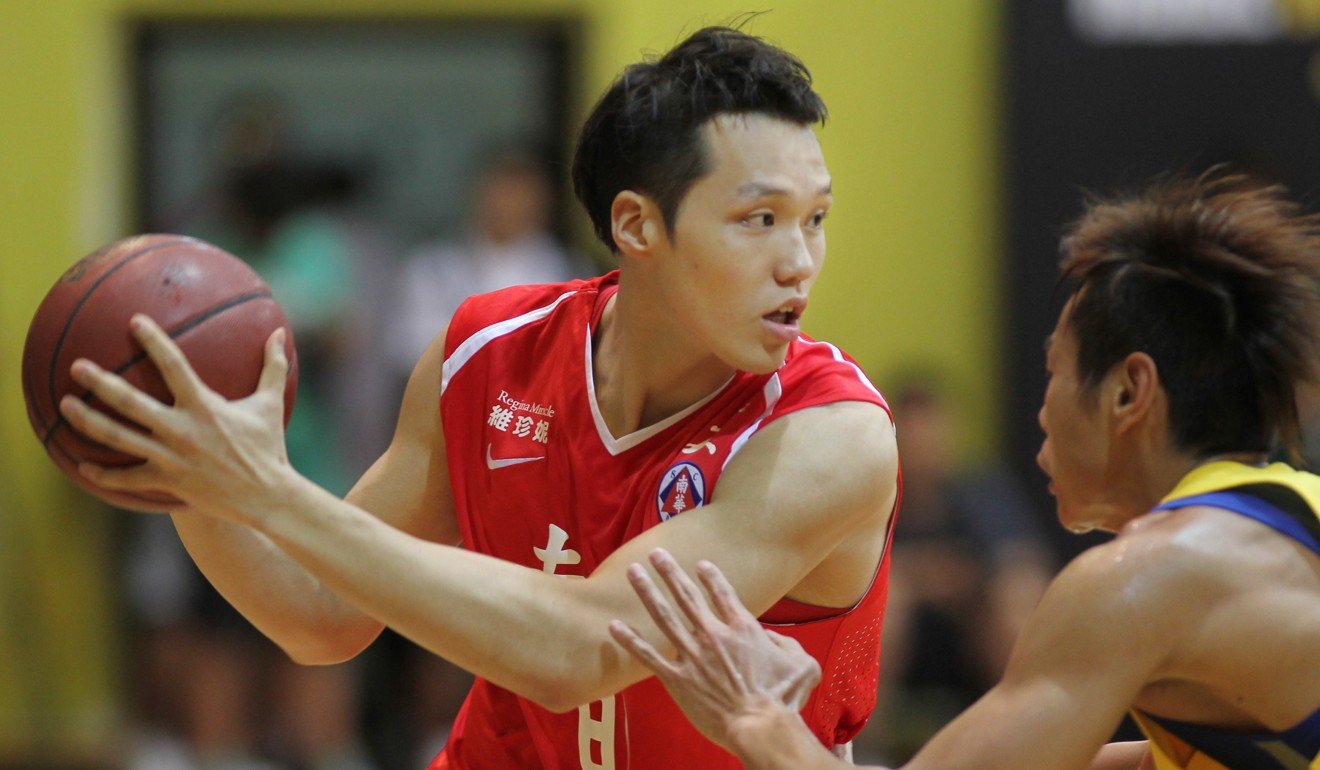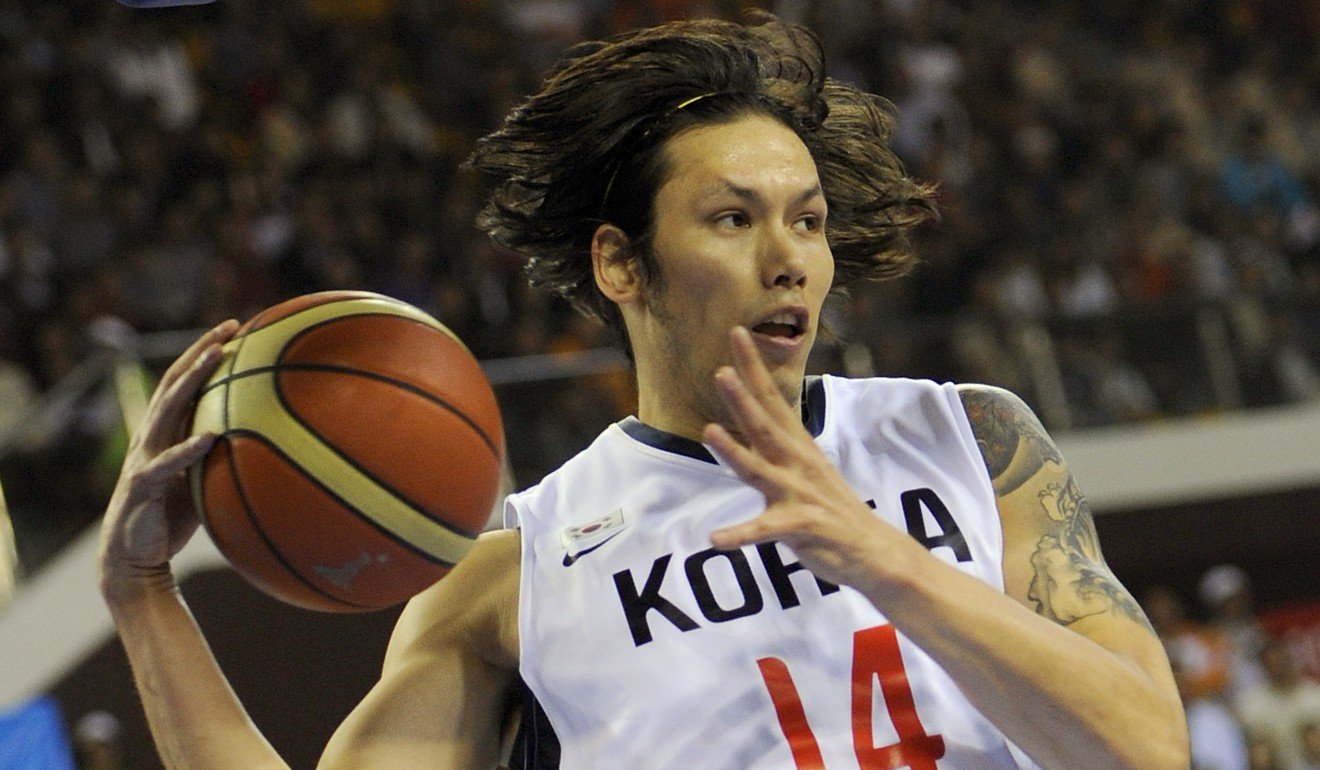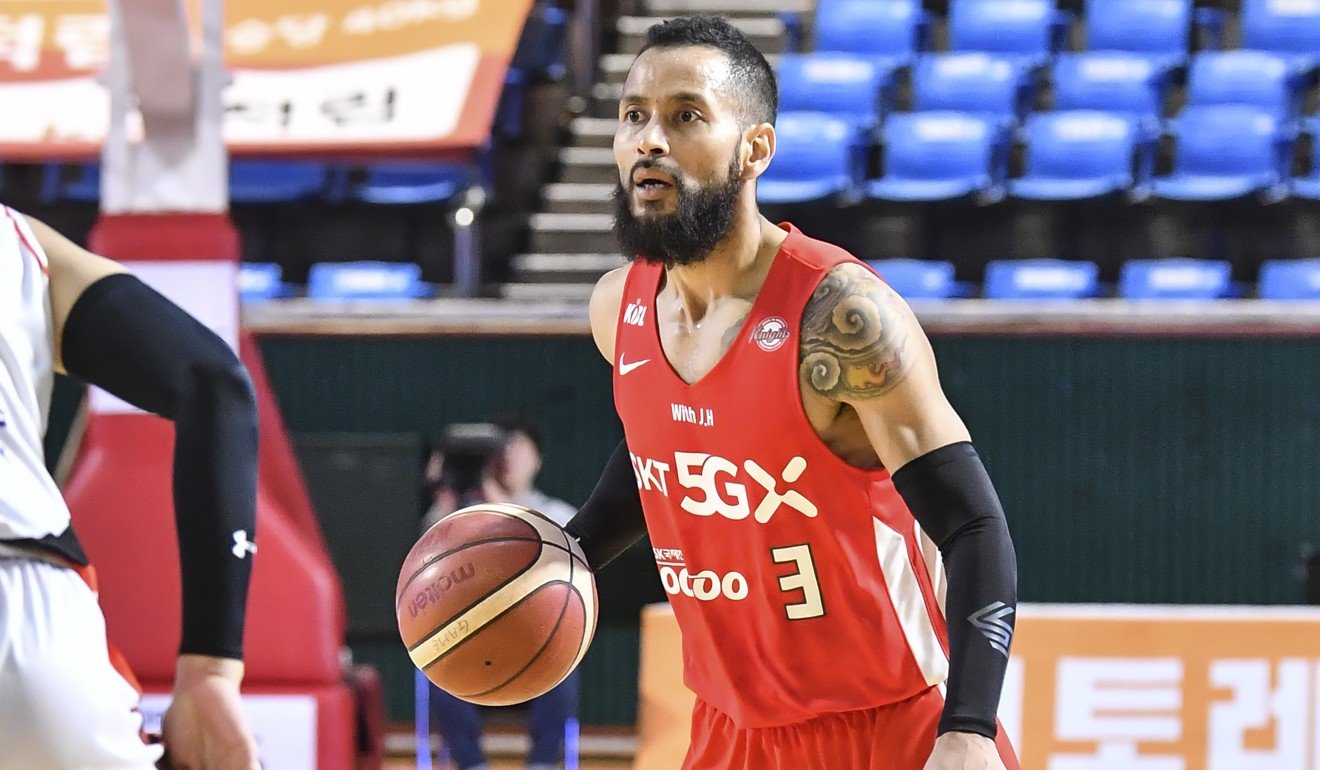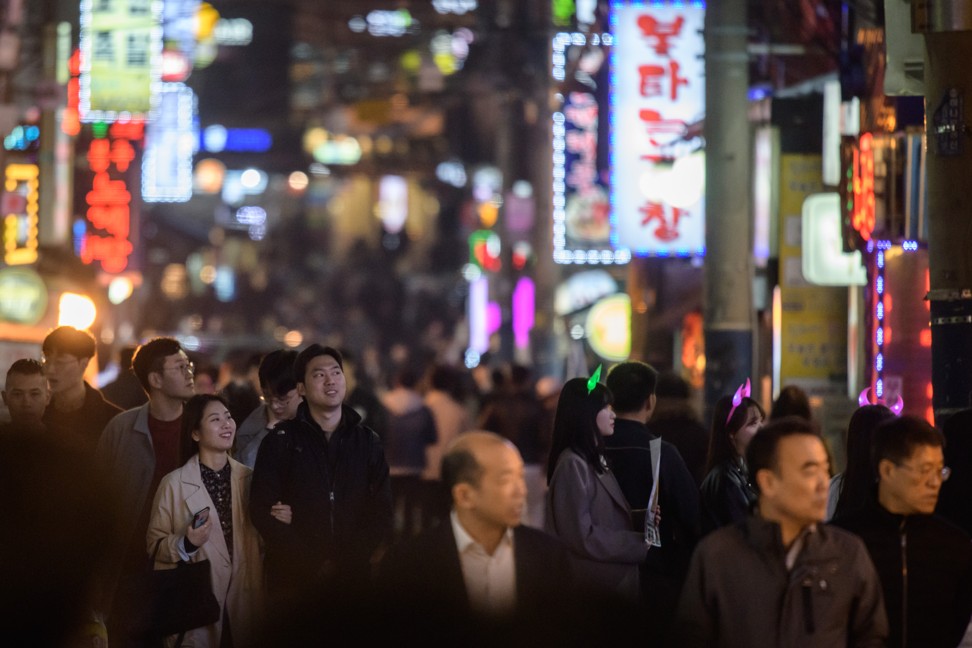
‘Go home’: the hidden struggles of South Korea’s naturalised basketball players
- They play for South Korea and have made the country their home, but being naturalised citizens is a rocky road, say the overseas-born athletes
- Many struggle with the Korean hierarchical social system, while others are told to ‘go home’ after lacklustre games
In January, three-time Korean Basketball League (KBL) champion Ra Guna went public about the discrimination he receives “on a daily basis” from fans. The naturalised South Korean citizen said whenever he had lacklustre games, fans would post racist and hateful comments online, telling him and his family “to go back home” or his daughter to die.
The 31-year-old, who has been praised as one of the best players in the league, led his team, Mobis Phoebus, to three consecutive championship victories from 2012 to 2014. He has also been a dominant force for South Korea in international competitions such as the 2018 Asian Games, where he helped the country to win the bronze medal.
Nevertheless, Ra Guna’s experience reflects the hardships foreign-born players can face after coming to South Korea to play professional sport. For these athletes, adapting to a society where 96 per cent of the population is ethnic Korean requires getting used to a culture rooted in Confucian ideals, such as a strong social hierarchy and in-group mentalities.
Senior players on the university basketball squad would pick on me for merely coming from a different country.
Ra Guna is one of nine KBL players from abroad who has received Korean citizenship since the league was established in 1996.
Among that group is also Hong Kong’s Chow Kin-wan, 29, who was the last pick in the KBL draft in 2016.

When he was 21, the former South China player in the Hong Kong Basketball League enrolled in Myongji University in Seoul to chase his dream of playing professionally in South Korea.
Chow, whose mother is Korean, was eligible to become a naturalised South Korean citizen after he started his professional career in the country.
The training regime was strict, he says, and he was bullied by older teammates.
“The sports culture was so different in South Korea with all its rigid structures that I didn’t understand, but just followed,” Chow said. “Senior players on the university basketball squad would pick on me for merely coming from a different place.”

Lee Seung-jun, an American-born KBL player who advised Chow to play in South Korea after meeting him at an international tournament, understands the arduous process of switching one’s citizenship.
His younger brother, Dong-jun, was the KBL’s first naturalised player. Both half-Korean brothers came from the US with limited exposure to Korean culture, barely able to speak a word in Korean. Lee says he ran into walls rights away.
“The curfews and dormitory life made it feel like you were in the military,” said Lee, 41, who was scouted straight out of high school in the US by Yonsei University in Seoul. “Professional athletes in other countries don’t live under such strict rules.”
Feeling Filipino: rugby helps mixed-race players discover their mums’ roots
Lee, who is fluent in Korean today, says he did not get to know any of his fellow Korean teammates even though he would be around them for more than six months at a time.
“The only people I would talk to was my brother, translator and other foreign players in the league,” he said.
Lee also noticed that Korean teams were different from teams in the United States, Luxembourg or Brazil; places he had played before arriving in South Korea.
Since I’ve come to South Korea, no one has asked for my opinion. I’m only considered as the foreign player here.
“Usually, the best players on the teams naturally become the captains, but in Korea, the eldest member is the captain,” Lee said. “I didn’t really understand why some older guy from the bench was telling me what to do.”
In 2019, Ra Guna expressed frustration towards his team and Korean basketball in general after South Korea’s team finished with one win out of five games in the 2019 FIBA Basketball World Cup.
After telling reporters that “everything was a problem” in Korean basketball, Ra Guna implied that only the captain of the team held the authority to advise and lead the other team members.
“Since I’ve come to South Korea, no one has asked for my opinion,” he said. “I’m only considered as the foreign player here.”

Jeon Tae-poong, who plays for the SK Knights, is another naturalised KBL player from the US.
The 39-year-old, whose mother is Korean, started his professional career in the country in 2009 with high hopes of representing the country in the 2010 Asian Games, but conflicts with the national head coach cut his dreams short.
Jeon is known as a player who “speaks his mind”, as compared with Korean players who display strict obedience.
“I’ve got a sour taste from the Korean system since I arrived here, as miscommunication made me into a sort of villain on teams that I played on,” says Jeon.
Jeon says the experience has left him fed up and that he plans to retire after the current season. “I’m going into the entertainment side as fans seem to appreciate me more here,” he said.

Lee Seung-jun has already started making such a career shift, appearing as a guest on TV shows like Video Star. Both he and his brother have contracts with Quan Entertainment, an entertainment agency run by Haha of popular TV programme Running Man.
Jeon says Ra Guna’s decision to expose the xenophobia that foreign players face has helped to educate Koreans on the issue.
“Ra Guna bringing the issue of a foreign player’s hardships to the public’s attention is great for basketball and the country overall,” said Lee.
“I think miscommunication is the biggest obstacle, because even though they love players like Ra Guna who can bring a whole new dynamic to Korean basketball, they might become frustrated when these players can’t speak the same language.”
The opportunity to help people overcome cultural differences is significant, for even as the foreign-born players struggle with some aspects of adapting to Korean life, the country has also become a new home for them and their families.
Jeon has three children who love growing up in South Korea, and he says he is “content with Korean life”. Ra Guna’s daughter attends school in the country and he often shares about his family life on social media.
Lee Ki-kwang, a professor at Kookmin University who works with different professional sports leagues in the country, says South Korea is slowly becoming a second opportunity for many foreign players.
“Athletes who can’t make it in the more well-known leagues in the US and Europe look towards countries like South Korea and China to have a second chance,” he said. “There’s good money in it for them.”
Lee says the trend of recruiting foreign players into Korean sports might become bigger in the future as more money and interest are put into the leagues.
Why do Asians fetishise mixed-race celebrities?
He runs businesses in Hong Kong today, but says he dreams of returning to the KBL.
“I want to test my love for the sport by trying to join a professional team in South Korea again,” Chow said. “Whether it be this year or the year after, it depends.”


